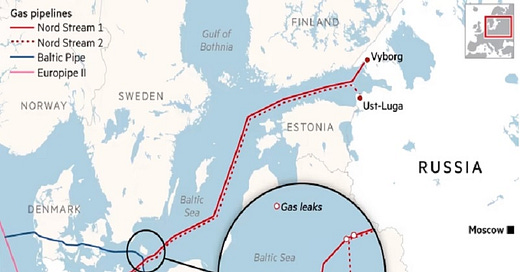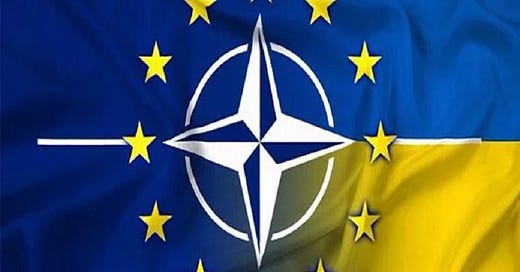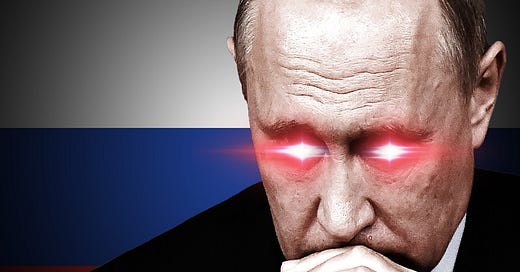
Whose Side Of The Ukrainian Conflict Is India Really On?
India’s policy towards the Ukrainian Conflict is one of principled neutrality whereby it’s carefully balancing between the Golden Billion and the BRICS-led Global South of which it’s a part. Those that still want to falsely perceive India’s stance towards the conflict in a zero-sum way, however, should realize that it actually sympathizes with Russia as its own policy history over the decades very strongly suggests.
Indian Prime Minister Modi’s remark to President Putin during their meeting on the sidelines of the latest SCO Summit in Samarkand about how “I know that now is not an age of wars” was widely interpreted as a direction condemnation of Russia’s special operation in Ukraine. Even though former Foreign Secretary and Ambassador to Russia Kanwal Sibal clarified that this wasn’t the case and the serving Russian Ambassador to India confirmed that the West decontextualized what he said in order to manipulate it, this false perception continued to persist among many. It was in this context that External Affairs Minister (EAM) Jaishankar officially revealed which side India is on in the Ukrainian Conflict:
“As the Ukraine conflict continues to rage, we are often asked whose side are we on. And our answer, each time, is straight and honest. India is on the side of peace and will remain firmly there. We are on the side that respects the UN Charter and its founding principles. We are on the side that calls for dialogue and diplomacy as the only way out. We are on the side of those struggling to make ends meet, even as they stare at the escalating costs of food, of fuel and fertilizers. It is therefore in our collective interest to work constructively, both within the United Nations and outside, in finding an early resolution to this conflict.”
Quite clearly, India’s stance is one of principled neutrality wherein it neither supports nor opposes any of the parties to the conflict, whether direct or indirect ones. Nevertheless, some continue to maintain that neutrality is supposedly impossible and that every country at the very least leans closer to one side or the other. Even though that’s an inaccurate way of assessing everything, for the sake of discussion, some extrapolations can be made from Jaishankar’s words. The initial impression that one might have is that India tacitly supports the US-led West’s Golden Billion on the basis that his references to peace, the UN Charter, and the global food and fuel crises supposedly imply tactic criticism of Russia.
Upon reflecting more deeply on what he said, however, it becomes apparent that India actually sympathizes with Russia. The UN Charter enshrines the right to self-defense, which is what Russia is practicing throughout the course of its special operation after NATO crossed its national security red lines in Ukraine. Unilateral sanctions like those imposed by the Golden Billion against that Eurasian Great Power and which are responsible for the global food and fuel crises are illegal in the eyes of international law, hence why India has proudly rebuffed all US pressure to implement them. This interpretation isn’t “wishful thinking” like critics might claim, but based on India’s own policy history.
For instance, those who claim that India is adamantly against the use of military force in self-defense clearly aren’t aware of how it interprets the reasons behind its three wars with Pakistan since their independence and the two surgical strikes that it claimed to have carried out against it in recent years. Furthermore, India regularly tries to rally the international community into putting pressure on Pakistan on the pretext that its neighbor supports terrorism since it understands the importance of multilateralism in order to legitimize its goals. It’s irrelevant whether one supports or opposes these policies since all that’s being asked to understand India’s calculations.
Considering its policy drivers and the means through which it seeks to advance its interests as its leadership understands them to be, which includes employing force against its neighbor at times whenever it feels that it’s justified for self-defense and rallying the international community to agree to sanctions against that same country through multilateral frameworks like the Financial Action Task Force (FATF), it cannot plausibly be claimed that India is secretly opposed to Russia’s special operation. The conceptual basis behind that campaign is identical to that which India itself has occasionally applied throughout the decades vis a vis Pakistan.
Regarding the global food and fuel crises, India knows very well that these are the direct result of unilateral and therefore illegal sanctions imposed by the Golden Billion against Russia. In principle, those sanctions are no different than the ones that the US imposed against India for its 1998 nuclear test. Both were promulgated outside the international legal authority of the UNSC and were done in response to their target advancing what their leadership sincerely regarded as their objective national security interests. Once again, the reader isn’t being asked to agree or disagree with Russia or India’s respective policies, but simply to acknowledge the commonality between them that’s ignored by most observers.
And lastly, all speculation about India supposedly siding with the Golden Billion against Russia is easily discredited by the fact that Delhi has redoubled the Russian dimension of its Eurasian grand strategy. It’s done this by maximally scaling up the import of discounted oil, reviving the North-South Transport Corridor (NSTC) through Iran for the purpose of serving as an irreplaceable valve from Western pressure upon Moscow (not to mention striving to create a third pole of influence in International Relations through a trilateral axis between those three), and closely cooperating with the Kremlin in Afghanistan and Central Asia, among other examples. None of this would be happening if India was against Russia.
On a closing note, the reader should be reminded that India’s actual policy towards the Ukrainian Conflict is one of principled neutrality and that it’s carefully balancing between the Golden Billion and the BRICS-led Global South of which it’s a part. For as closely as it’s cooperating with Russia across an impressive range of spheres, so too is it doing the same with the West, hence why it’s inaccurate to conclude that it supports one over the other like many for some reason want to claim. Those that still want to falsely perceive India’s stance towards the conflict in a zero-sum way, however, should realize that it actually sympathizes with Russia as its own policy history over the decades very strongly suggests.













